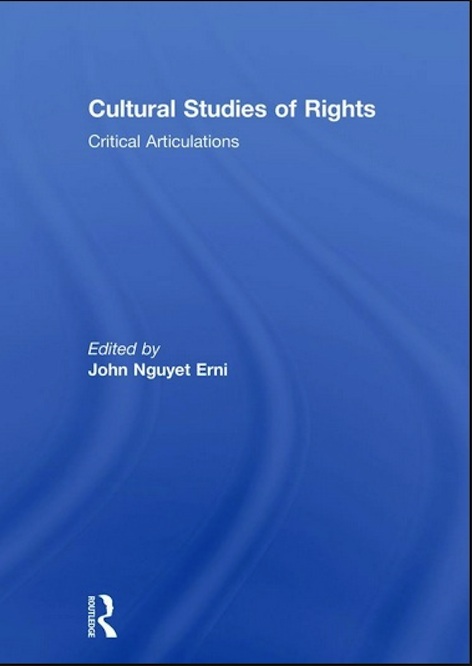Exiled Writers, Human Rights and Social Advocacy Movements in Australia: A Critical Fugal Analysis
Author: Dr Ruth Skilbeck
Article: ‘Exiled Writers, Human Rights and Social Advocacy Movements in Australia: a Critical Fugal Analysis.’
Publication: Cultural Studies of Rights: Critical Articulations, edited by John Erni
Publisher: Routledge
Hardcover published 2011; paperback 2014
Abstract
Whereas much work in cultural and communication studies of “the subject” and subjectivity in language has focused on deconstructive theory and critique disconnected from actual practice and people, this paper applies an innovative cultural studies approach to a journalism reflective practice research project, conducted by the author, into human rights advocacy for cases of exiled writers in immigration detention centers in Australia. In the intellectual context of “counter-hegemonic” theories that use music as an analogy for affective social relations, the paper applies what is herein termed a “fugal critical analysis,” by drawing on both musical and psychological meanings of fugue (as musical counterpoint and psychological loss of awareness of self-identity following trauma) to discuss a human rights research project. The project includes conducting interviews with an exiled Ivory Coast journalist, and an Iranian poet-musician, and their advocates, including founding member of PEN's Writers in Detention committee whose publication of an exiled writers' anthology helped secure their releases on a case by case basis. The paper argues that direct engagement with cases of social injustice—here crystallized in the encounter of the interview—brings new relevance to cultural studies research practice that can effect significant changes in perception and action; in this case shifting consideration of “the subject” from the much publicized hypothetical “death of the author” of recent theory, to actual cases of exiled endangered writers, bringing cultural studies research into institutional spaces where cases can be humanely heard and supported, not merely critiqued and deconstructed.
Book description:
At a time of global uncertainties and erosion of liberties, how will cultural studies clear a space for a parallel intellectual and political engagement with human rights practice? How will human rights thinking be liberated from its doctrinal approach to ethics and legal justice? This book forges an alliance between cultural studies and human rights scholarships, to help us better understand the changing and complex political context that continuously shapes contemporary violence. To date, interdisciplinary dialogue or institutional collaboration remains rare across the two domains, resulting in critical interpretive work appearing too vacuous at times and institutional legal work often trapped in doctrinalism. By opening a door for a new and engaging scholarship, this book will re-ignite debates and passions within communication and critical cultural studies in the search for global justice.
This book was originally published as a special issue of Communication and Critical/Cultural Studies.


